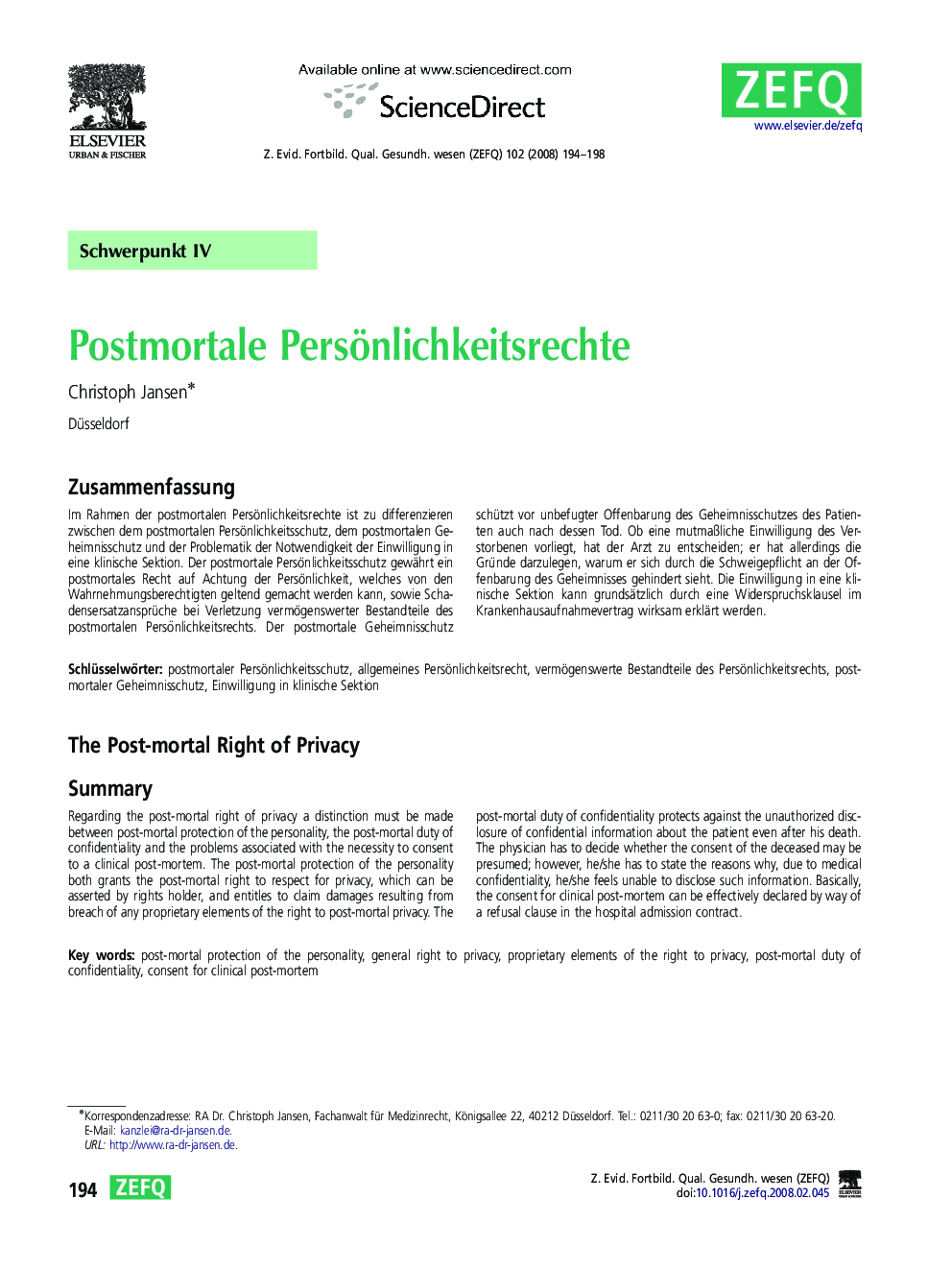| Article ID | Journal | Published Year | Pages | File Type |
|---|---|---|---|---|
| 1095109 | Zeitschrift für Evidenz, Fortbildung und Qualität im Gesundheitswesen | 2008 | 5 Pages |
ZusammenfassungIm Rahmen der postmortalen Persönlichkeitsrechte ist zu differenzieren zwischen dem postmortalen Persönlichkeitsschutz, dem postmortalen Geheimnisschutz und der Problematik der Notwendigkeit der Einwilligung in eine klinische Sektion. Der postmortale Persönlichkeitsschutz gewährt ein postmortales Recht auf Achtung der Persönlichkeit, welches von den Wahrnehmungsberechtigten geltend gemacht werden kann, sowie Schadensersatzansprüche bei Verletzung vermögenswerter Bestandteile des postmortalen Persönlichkeitsrechts. Der postmortale Geheimnisschutz schützt vor unbefugter Offenbarung des Geheimnisschutzes des Patienten auch nach dessen Tod. Ob eine mutmaßliche Einwilligung des Verstorbenen vorliegt, hat der Arzt zu entscheiden; er hat allerdings die Gründe darzulegen, warum er sich durch die Schweigepflicht an der Offenbarung des Geheimnisses gehindert sieht. Die Einwilligung in eine klinische Sektion kann grundsätzlich durch eine Widerspruchsklausel im Krankenhausaufnahmevertrag wirksam erklärt werden.
SummaryRegarding the post-mortal right of privacy a distinction must be made between post-mortal protection of the personality, the post-mortal duty of confidentiality and the problems associated with the necessity to consent to a clinical post-mortem. The post-mortal protection of the personality both grants the post-mortal right to respect for privacy, which can be asserted by rights holder, and entitles to claim damages resulting from breach of any proprietary elements of the right to post-mortal privacy. The post-mortal duty of confidentiality protects against the unauthorized disclosure of confidential information about the patient even after his death. The physician has to decide whether the consent of the deceased may be presumed; however, he/she has to state the reasons why, due to medical confidentiality, he/she feels unable to disclose such information. Basically, the consent for clinical post-mortem can be effectively declared by way of a refusal clause in the hospital admission contract.
